When distracted by distraction and unable to sink properly into a book it sometimes helps to revisit past loves. One of these is The Age of Innocence by Edith Wharton.
There are few writers as truly modern or perceptive as Wharton, who depicts a grasping, aspiring, acquiring culture that should be long dead but alas is thriving, in much the same form as it was in her day. People will say Wharton writes of society and its manners and mannerisms, and I find her acute eye for what goes on among women, and women and men, particularly instructive. She missed nothing, and not much has changed.
The Age of Innocence speaks particularly loudly to me. Newland Archer loves Countess Olenska, said to be disgraced in the eyes of her peers. Olenska is not disgraceful in the least -- she is strong, smart, real and since those around her are merely strong and smart, she loses. She is far too dangerous, far too rich a brew or too adventurous a choice for the sad Archer to make and he instead is swept into the seemingly gentle May's seemingly gentle embrace.
But May is far more devious than Olenska, and plays her cards well. She is not thought to be anything but sweet and slightly stupid and so hides in plain sight, she is the reasonable and expected choice and lives the life she wants without hesitation or obstacle. Archer and Olenska not so much.
Would that Archer were stronger, or not so concerned about "ought".
I read this book years ago when I played the Olenska role in another life, the whore to another woman's virgin. I lost then, too, but lost only the man. Like Olenska, I retained the life of a seeker, a thinker, a real person which perhaps is better in the end....fewer babies, yes, but fewer regrets as well.
Perhaps I am mistaken about that. In a world made up of virgins and whores, the virgins seem to do pretty well. They are satisfied with less. They understand the weakness that brought them their victory and they're fine with it, they don't care that much about truth and beauty anyway. Just comfort and the joy of knowing you have a place and you're always in it.
Lucky ducks.
Subscribe to:
Post Comments (Atom)
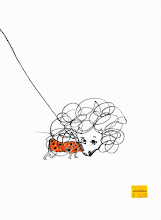



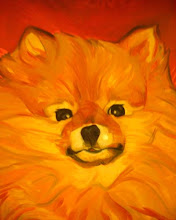
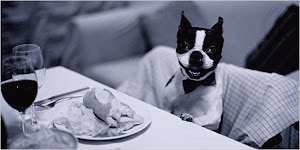
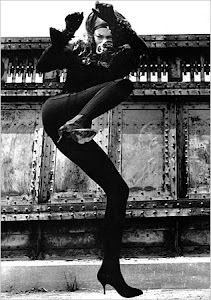



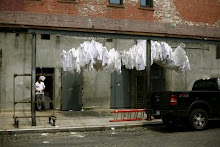

12 comments:
I have read little Wharton, really only a couple of short stories. However, something she said has stuck with me: it was her metaphor for a woman's life which was that of a big house full of rooms. Each room respresents an aspect of the woman's life. There is the busy front hall into which everyone passes. The drawing room for formal visits. The sitting room for family. Beyond those rooms are the rooms no one visits. No one knows the way or where they lead. She called this the holy of holies, I think, where a woman;s soul waits along waiting for the visitor that never comes.
I'm not sure anyone ended up being particularly happy in TAOI.
I don't think that 'virgin' vs. 'whore' is quite the right comparison. How about 'boringly conventional' vs. 'creativly living your life'? I suppose there is a reason for conventions though. If you are going to be creative you need to be willing to suffer for your creativity.
I also wonder if Wharton was using the term 'Holiest of the Holies' the same way my buddies did in high-school? I guess we all have our favorite rooms in the house. ;-)
I'd wager Wharton was borowing from the Kadosh, the inner sanctuary of the Tabernacle in the time of Moses, but I hear you, bro: we all have our favourite rooms.
By the way, why are only men -- if we can be described as such -- keeping this blog going?
Do you mean keeping the contents going or keeping blogging going in general? [wink].
Ahem.
The only Wharton I've read was "The House of Mirth," and I think much of what TN talks about here is true for that book as well. Perhaps not virgin or whore, but definitely 'good' and 'bad' in terms of the eyes of society. Not much has changed, and these themes sort of rebound all over pop culture. Remember that episode of "Sex and the City" when Mr. Big marries the stick figure who can't spell? Same thing, different era.
I think they're easy, human conflicts that art and literature can explore in ways that seem insightful, even if maybe we've moved well past the madonna/whore distinction, or at least I hope we have.
All in all, it's something to think about, that's for sure -- and perhaps means I need to add The Age of Innocence to my TBR pile. It's a 1001 Books book too, I think, another good reason to pick it up.
I love the word ahem. More than most tailors even.
I meant this blog in particular which, until now, was engaging only men. The fact is that TN's columns demand the full attention of all three sexes.
Here's my take on this madonna/whore pole: it's too easy, and while it makes for great storytelling, it doesn't reflect the true nature of life. Life, in my rich experience, is not lived in black and white; it is lived in shades of grey. Nothing is ever as it seems. Grasp that and you have grasped the essence of art itself.
As that great, prolific, drunken, bent painter Bacon put it, the role of the artist is to always deepen the mystery.
Resist always the urge to delineate, categorize and pigeonhole. Celebrate ambiguity.
Excuse me now. I am due back on the planet Earth.
The only problem being that many, many people, including our own government, don't necessarily see the value in art or artists.
Of course artists should deepen the mystery, what a wonderful thought, if only more than a small bent of people actually appreciated it.
For so much of the world is drawn in black and white, and even if their colour palette may stretch well beyond those hues, there's still that impetus to organize just about everything into two columns: good/bad, black/white, right/wrong.
And I'm not even going to get started on Descartes and the whole Manichean allegory debate. I think the battle of the sexes falls somewhere in between the two.
Here is the thing. The sad part for interesting people, and I include artists among them, is that the world does not appreciate heroes the way it should and certainly does not appreciate heroic women as it does heroic men. So, to get back to the point of the book, our poor Archer could not deviate from the norm, could NOT follow his heart but rather followed convention. Hence the look of black and white. He could see in colour, he just couldn't live in colour. How many artists are understood or appreciated in their time? how many creative, interesting people are appreciated in their time, or close by? We like Diana Vreeland just fine as she appears in pictures but did she have a lineup of lovers? Not as far as I know.
Why do you think the book is titled as it is? what does the age of innocence refer to?
"I'd rather be a whole person than a good person."
-- Carl Jung
Descartes was an idiot.
I do not know what innocence means, but I do know what innocence lost can be. Read Dylan Thomas's The Rub of Love.
Diana Vreeland was hot. But then, so am I -- I have a fever of 102F today. I might be delusional.
Well, well, apropos of all of the above, check out this morning's Globe and Mail book review of a new Wharton biography.
According to her biographer the thread woven throughout her body of work is a theme of emancipation: from class, from country, from conventions.
So, I cheated yesterday and watched Marty Scorcese's film of the book The Age of Innocence. I, too, am going through a similarly distracted stretch and can't stick with any book. (The best I can do lately is to read book blogs. The literary equivalent of window shopping?)
What wonderful filmmaking! Artfully crafted, tragic. romantic, filled with yearning, quite lovely. Did Scorcese do justice to the book? I cannot say.
But I do have a thought on the meaning of the title, in answer to Anonymous's question earlier:
Based on what I saw in the film, Wharton brought a satirical and ironical perspective to her observations of that time and class. For all her tenderness she watched life with just the hint of a sneer and a twinkle, and I think this is reflected in the title. I think it is an Aristophanean poke at the hypocrisy of that era and that class and that place. In short, there was nothing innocent about wealthy New Yorkers of the late 1800s.
The "innocence" comes from thinking any of it matters. What people think. What you do. How you live.
Emancipation is the experience to which we move from innocence.
My respect for Edith Wharton is without limit. The Age of Innocence is the definitive book for me. The House of Mirth was so painful, I couldn't read more than the first few pages. Wharton defines and probes the space between what should be and what is; between justice and reality; between desire and possibility. If she were also to have examined the lives of the poor (and perhaps she did in something I haven't read), I suspect she would be one of history's leading revolutionary thinkers.
Hi there i am kavin, its my first occasion to commenting anywhere, when i read this
piece of writing i thought i could also make comment due to this good piece of writing.
Feel free to visit my page - lose weight
Post a Comment